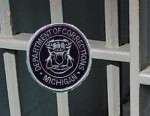A new report by the Constitution Project’s National Right to Counsel Committee has found that the problems in public defender systems around the country mirror those found in a study of Michigan’s system promoted by the Michigan Campaign for Justice. The reports concluded that the public defender systems in Michigan and in other states are badly underfunded and so badly implemented that they deny the constitutional right to counsel to indigent defendants.
The report’s executive summary details the problems of underfunded and overburdened public defenders:
Undoubtedly, the most visible sign of inadequate funding is attorneys attempting to provide defense services while carrying astonishingly large caseloads. Frequently, public defenders are asked to represent far too many clients. Sometimes the defenders have well over 100 clients at a time, with many clients charged with serious offenses, and their cases moving quickly through the court system. As a consequence, defense lawyers are constantly forced to violate their oaths as attorneys because their caseloads make it impossible for them to practice law as they are required to do according to the profession’s rules. They cannot interview their clients properly, effectively seek their pretrial release, file appropriate motions, conduct necessary fact investigations, negotiate responsibly with the prosecutor, adequately prepare for hearings, and perform countless other tasks that normally would be undertaken by a lawyer with sufficient time and resources. Yes, the clients have lawyers, but lawyers with crushing caseloads who, through no fault of their own, provide second-rate legal services, simply because it is not humanly possible for them to do otherwise. Finally, to complete the picture, we discuss in Chapter 2 a variety of factors that exacerbate caseload problems for indigent defense systems, such as “tough on crime” policies translated by legislatures into additional criminal laws, the need for defendants to be aware of the collateral consequences of conviction, the criminalization of minor offenses, the ever-increasing complexity of the law with which defense attorneys must be familiar, a lack of open file discovery practices by prosecutors, and specialty courts that impose additional time demands on defense attorneys.
The report also notes the same kinds of problems with political interference and lack of oversight that the earlier study found in Michigan:
Beyond excessive caseloads, there are other impediments to having successful indigent defense programs. Too often the problems stem from a lack of independence from the authorities that provide funding for the defense program. We tell stories in Chapter 2 of county officials, responsible for providing funds for indigent defense, subjecting chief public defenders to political pressures because their lawyers challenged the prosecution and did exactly what they were required to do in representing their clients. We also point out that a lack of independence from the judiciary sometimes impacts the selection, appointment, and payment of counsel. Lawyers deemed to be too aggressive may be excluded from appointments, or favoritism may be shown to certain lawyers, who are appointed to a disproportionate share of the cases.
Other difficulties encountered in efforts to provide effective defense services include a lack of experts, investigators, and interpreters; insufficient client contact; and inadequate access to technology and data. Usually, there are no enforceable standards governing the performance of defense counsel, little or no training of defense lawyers, and a lack of meaningful supervision and oversight of their performance. Another problem is that defense lawyers are not always appointed to clients’ cases in a timely manner, causing defendants to remain in custody far longer than they would otherwise and counties to incur jail costs that could have been avoided had counsel been appointed earlier in the process.
Tim Lewis, a retired federal judge who chairs the committee that wrote the report, told NPR, “You should not have a better shot at justice, a better opportunity for an adequate defense, depending upon who arrests you in this country or where you were when you were arrested or what court system a defendant winds up in. This is a basic constitutional right.”




